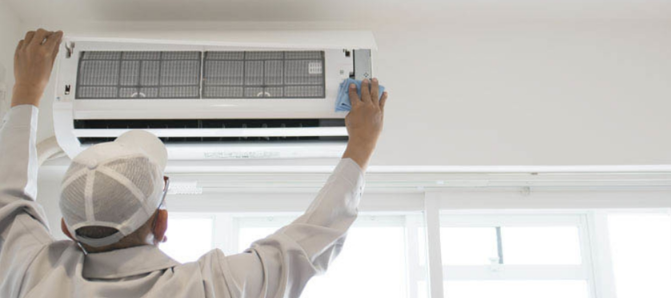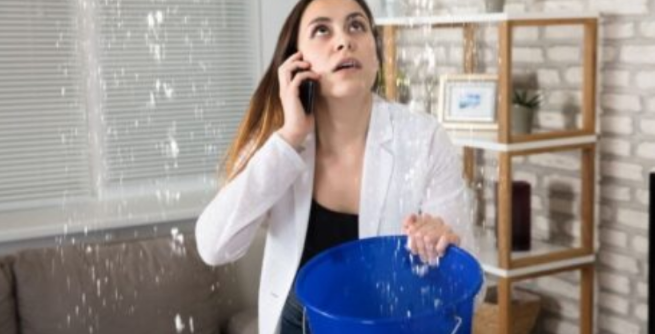How to Deal with AC Leaks and Water Damage?
Your air conditioning system is a lifesaver during scorching summers, but what happens when it springs a leak? AC leaks can lead to significant water damage if not addressed promptly. Today, we’ll discuss how to detect, troubleshoot, and prevent AC leaks. We’ll also explore situations when you might need to call in AC Leaking Water Hollywood professionals. So, let’s get started.
Signs of AC Leaks
Detecting AC leaks early is crucial. Look out for signs like:
- Puddles or Dampness: Check for water puddles or damp spots around your AC unit or nearby walls and floors.
- Musty Odors: A moldy or musty smell may indicate water buildup or mold growth.
- Reduced Cooling: If your AC isn’t cooling as efficiently as before, it could be due to refrigerant loss from a leak.
- Unusual Sounds: Gurgling or hissing noises coming from your AC unit might signal a problem.
Causes of AC Leaks
Common culprits responsible for AC leaks include:
- Clogged Drain Lines: Over time, dirt and debris can block drain lines, causing water to back up and leak.
- Refrigerant Issues: A damaged refrigerant line or coil can lead to refrigerant leaks.
- Condensate Pan Problems: Cracks or corrosion in the condensate pan can result in water leakage.
- Evaporator Coil Freezing: If the evaporator coil becomes too cold, it can freeze, leading to ice buildup and eventual leaks.
- Improper Installation: Poorly installed AC systems may have loose connections or improperly sealed components, allowing refrigerant or condensed water to escape.
- Aging Equipment: Older AC units are more susceptible to wear and tear, including rust or corrosion on components, which can result in leaks.
- High Humidity Levels: Regions with high humidity can overload AC systems, causing excessive condensate production and potential leaks.
- Obstructions in Drain Lines: Algae or mold growth can block drain lines, preventing proper water drainage and causing leaks.
- Vibration or Movement: Vibrations from the AC unit or nearby machinery can loosen fittings or connections over time, increasing the risk of leaks.
- Punctures or Physical Damage: Accidental punctures or physical damage to refrigerant lines or components can lead to refrigerant leaks.
- Excessive Refrigerant Pressure: Overcharging the AC system with refrigerant can create excess pressure in the lines, potentially causing leaks or compressor damage.
- Corrosion: Corrosion can weaken components due to moisture or environmental factors, especially in coastal areas, leading to cracks and leaks.
Immediate Actions
If you spot any signs of an AC leak, take these immediate actions:
- Turn off the AC unit’s power supply to prevent electrical hazards.
- Place towels or a bucket to catch dripping water and prevent further damage.
- Check if the drain line is clogged and attempt to clear it if it is safe.

DIY Fixes for AC Water Leaking Issues
Consider these DIY steps to fix AC leaking issues:
- Clogged Drain Lines: Clear the drain line with a wet/dry vacuum or pipe brush. Pour a water-vinegar mixture to prevent future clogs.
- Refrigerant Issues: Refrigerant issues require professional attention due to safety concerns and specialized equipment. Contact a licensed HVAC Company for diagnosis and repair.
- Condensate Pan Problems: Turn off the AC, clean the pan, patch small cracks with epoxy, or replace it if severely damaged.
- Evaporator Coil Freezing: Thaw the coil by turning off the AC, replace a dirty filter, ensure proper airflow, and consult a pro if issues persist.
- Improper Installation: Correcting installation problems often requires professional expertise. Contact a licensed HVAC Technician to inspect and address any installation-related issues.
- Aging Equipment: Perform basic maintenance, such as cleaning coils and changing filters. Consult a professional AC Repair Company for component repairs or replacements.
- High Humidity Levels: Use a standalone dehumidifier alongside your AC to reduce indoor humidity levels.

Calling in the Professionals
Sometimes, it’s best to leave it to the experts. Professionals have the knowledge and tools to diagnose and resolve AC leaks safely and effectively. Call in AC Leaking Water Hollywood professionals when:
- The leak persists despite your efforts.
- You suspect a refrigerant leak, as handling refrigerants requires special training.
- Your AC unit is still under warranty, as DIY attempts might void it.
Additional Maintenance Tips to Prevent AC Leaks
Preventing AC leaks is far easier than dealing with the aftermath. Follow these preventive maintenance tips:
- Regular Cleaning: Keep your AC unit clean, removing debris and dust.
- Annual Inspection: Schedule annual professional inspections to catch issues early.
- Change Filters: Replace air filters regularly to maintain proper airflow and reduce strain on your AC system.
- Clear Surroundings: Ensure no obstructions around your AC unit, allowing proper ventilation.
Remember that dealing with AC leaks and water damage isn’t too difficult when you know the right ways to do so. Also, AC Leaking Water Hollywood experts are just a call away from you in case DIY fixes don’t help.


























